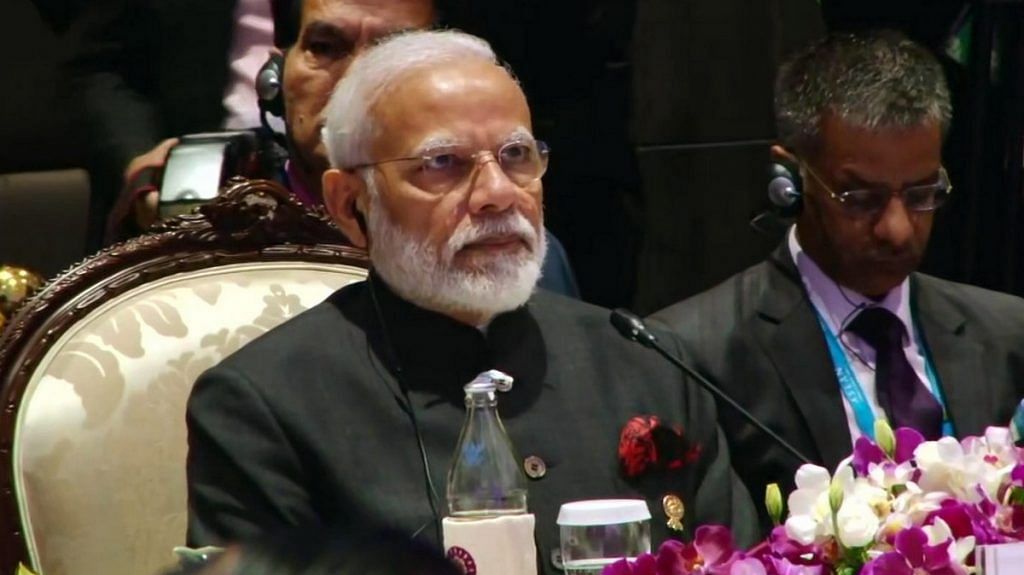New Delhi: With the Australian Minister for Trade, Tourism and Investment, Simon Birmingham, set for a four-day visit to India starting 24 February, New Delhi is keen on resuming negotiations on the long-pending Comprehensive Economic Cooperation Agreement (CECA) between the two countries, multiple sources have told ThePrint.
Birmingham will meet Commerce Minister Piyush Goyal on Monday.
Australia and India had launched negotiations for a CECA in May 2011. There have been nine rounds of negotiations so far with the last formal round being held in September 2015.
The talks veered off course as both sides were engaged in discussing the ASEAN-led RCEP even as the two countries could not iron out differences over market access issues in agriculture and dairy products.
According to sources, now that India is out of the Regional Comprehensive Economic Partnership (RCEP) talks, it wants to focus on concluding the CECA. New Delhi is keen on clinching bilateral trade pacts with some of the key RCEP member countries such as Australia and New Zealand, with whom the negotiations have already started and some rounds have taken place.
But Australia is keen on bringing New Delhi back to the RCEP table. Hence, sources said, Canberra is going to make a “last-ditch attempt” to bring India to the RCEP table as it believes India, with a huge market, should not be left out of an integrated market that RCEP will be creating.
With yet another RCEP summit likely to be held next month (12-14 March), the remaining 15 members have decided to sign the pact with the option of India joining in later, sources said.
Sources said Prime Minister Narendra Modi is likely to give it a miss this time, which will make it clear that India is “not interested” in the RCEP anymore.
New Delhi had even stayed out of the last informal meeting of RCEP chief negotiators, which was held in Bali, Indonesia, earlier this year.
Also read: ‘No going back’ — Australia says Adani’s $16bn coal mine project set to be operational
The RCEP
Australia is one of the members of the proposed RCEP pact, along with Brunei, Cambodia, Indonesia, Laos, Malaysia, Myanmar, the Philippines, Singapore, Thailand, Vietnam, China, Japan, South Korea and New Zealand.
“Australia or for that matter anyone cannot speak for India. All of them need India because it has a big and growing market,” said Jayant Dasgupta, former Indian ambassador to World Trade Organisation (WTO). “Some of the key RCEP countries such as Australia, Japan and New Zealand only export; they do not manufacture anything. The stage has come when it makes no sense for India to attend the RCEP summits.”
Some of the concerns that remain unaddressed for India within the RCEP are inadequate protection against import surge, differences with China over pricing structure of goods, possible circumvention of rules of origin, keeping the base year as 2014 for tariff reduction, as well as no credible assurances on market access and non-tariff barriers, Dasgupta added.
India to stay out of RCEP
Prime Minister Modi had on 4 November said no to RCEP at a summit held in Bangkok where leaders of the remaining 15 member countries gave their consent to formally sign the agreement by 2020.
India mainly walked out of the RCEP since China demanded greater access to the Indian market across a wide range of goods, for which it wanted tariffs to be reduced to minimal, in some cases even nil.
“There is no appetite for RCEP anymore. And it was recently made clear during the Budget also by Finance Minister Nirmala Sitharaman. The RCEP logic only hinges on India and China; the rest of the countries are mostly exporters,” said Biswajit Dhar, trade economist and professor at the Jawaharlal Nehru University. “It remains to be seen what kind of an integrated market RCEP will create. As of now, it will be too risky to join the RCEP.”
India has also been facing stiff opposition from its industries and the farming community over the China-led RCEP and the over $60 billion trade deficit that New Delhi has with Beijing. The negotiations on the RCEP had started in 2012.
Also read: No trade deal with US during Trump visit as India doesn’t want to rush into one
